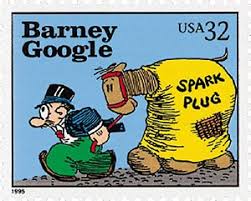There’s Really Only One Way to Reopen the Economy
Apr 27, 2020 07:17:33 #
sb wrote:
Please list the source of articles that you cut-and-paste. Unless we now have "Contributing Editors" writing editorial pieces for the UHH blog.
Have you heard about Google?
Apr 27, 2020 07:58:12 #
I like your opinion.
Reading such and seeing how government is seeking to be protective of the populace, as all expect and want. Brings up a thought that is a continuing thread in my mind - Franklyn's words "Those who would give up essential liberty, to purchase a little temporary safety, deserve neither liberty nor safety." Benjamin Franklin. To paraphrase - Those who would give up liberty for security will soon have neither.
Those who would insist the federal government do all in every situation are on that path. I wonder - should business be given liability protection against those who will claim that it didn't do enough, do it as fast as whatever should have been done or the correct things correctly. A paradox, given Franklin
Reading such and seeing how government is seeking to be protective of the populace, as all expect and want. Brings up a thought that is a continuing thread in my mind - Franklyn's words "Those who would give up essential liberty, to purchase a little temporary safety, deserve neither liberty nor safety." Benjamin Franklin. To paraphrase - Those who would give up liberty for security will soon have neither.
Those who would insist the federal government do all in every situation are on that path. I wonder - should business be given liability protection against those who will claim that it didn't do enough, do it as fast as whatever should have been done or the correct things correctly. A paradox, given Franklin
Apr 27, 2020 09:02:02 #
Yes, there is no simple solution.
Unfortunately, many younger people have been dying of strokes and blood clots as a result of the virus. It is attacking more organs than just the lungs. It will be a long time before we have this under control - months, if not years.
In less than a month, our county has gone from 194 to 1,176 positive cases. And keep in mind that only those who show all four symptoms are allowed to be tested.
Unfortunately, many younger people have been dying of strokes and blood clots as a result of the virus. It is attacking more organs than just the lungs. It will be a long time before we have this under control - months, if not years.
In less than a month, our county has gone from 194 to 1,176 positive cases. And keep in mind that only those who show all four symptoms are allowed to be tested.
Apr 27, 2020 09:04:48 #
Apr 27, 2020 09:14:28 #
Apr 27, 2020 09:15:55 #
epidemiologist Dr. Knut Wittkowski, formerly the head of the Department of Biostatistics, Epidemiology, and Research Design at Rockefeller University in New York City. Wittkowski argues that the lockdown prolongs the development of the "herd immunity," which is our only weapon in "exterminating" the novel coronavirus -- outside of a vaccine that's going to optimistically take 18 months or more to produce. He says we should focus on shielding the elderly and people with comorbidities while allowing the young and healthy to associate with one another in order to build up immunities. Wittkowski says, "So, it's very important to keep the schools open and kids mingling to spread the virus to get herd immunity as fast as possible, and then the elderly people, who should be separated, and the nursing homes should be closed during that time, can come back and meet their children and grandchildren after about 4 weeks when the virus has been exterminated." Herd immunity, Wittkowski argues, would stop a "second wave" headed for the United States in the fall. Dr. David L. Katz, president of True Health Initiative and the founding director of the Yale-Griffin Prevention Research Center, shares Wittkowski's vision. Writing in The New York Times, he argued that our fight against COVID-19 could be worse than the virus itself.
Apr 27, 2020 09:59:31 #
Apr 27, 2020 10:40:25 #
Charlie157
Loc: San Diego, CA
revhen wrote:
Someone once said, "I sometimes learn from my mistakes." To which someone replied, "We only learn from our mistakes."
Not everyone learns from their mistakes. Just saying.
Apr 27, 2020 10:51:04 #
Kmgw9v wrote:
The Las Vegas mayor should be locked up until there is a vaccine.
I'm glad this is one case in which the mayor has no real power - her job seems to be supervise those who keep the streets clean and city utilities running.
Apr 27, 2020 10:52:39 #
Salomj9850 wrote:
There are people who see mandatory vaccination as a violation of their rights.
History shows that mandatory vaccinations do save lives and eventualy save generations. I do not remember when they stopped but for many years it was required that children be vaccinated against smallpox or they could not go to school. During those same years school attendance was also mandatory, there were truancy officers to follow up on kids missing or skipping school. Smallpox has been eradicated from the earth. Of course truancy has not been eradicated, but that is not covered by vaccines.
Apr 27, 2020 11:12:52 #
Do you take any medication for your gout? After mine was diagnosed from toe joint fluid sampling, my doctor prescribed allopurinol and I have not had a gout attack in 10 years. Worth an ask.
lamiaceae wrote:
Thank you. This is one of the better articles I'v... (show quote)
Apr 27, 2020 11:13:37 #
RixPix wrote:
By Aaron E. Carroll br Contributing Opinion Writer... (show quote)
👍👍 Agree. The governor of Georgia and several other states are presently conducting an experiment (with their voter’s lives) to see if early reopening of business before a decline in infections is a viable strategy or a setback. Time will tell...
Apr 27, 2020 11:14:04 #
sumo wrote:
epidemiologist Dr. Knut Wittkowski, formerly the h... (show quote)
Wittkowki is not alone. There is a doctor at Yale and another at Stanford that say the same thing as well as the chief epidemiologist in Sweden. We never should have shut everything down. We should have protected and isolated those at highest risk and taken as many reasonable precautions as possible with everyone else.
Apr 27, 2020 11:25:52 #
btbg wrote:
Wittkowki is not alone. There is a doctor at Yale and another at Stanford that say the same thing as well as the chief epidemiologist in Sweden. We never should have shut everything down. We should have protected and isolated those at highest risk and taken as many reasonable precautions as possible with everyone else.
The people who live near several meat packing plants would not agree. The plants closed partly because the absentee rate was making opertating difficult and partly because local officials became less and less willing to tolerate a source of infection in their midst.
Apr 27, 2020 11:32:10 #
If you want to reply, then register here. Registration is free and your account is created instantly, so you can post right away.








